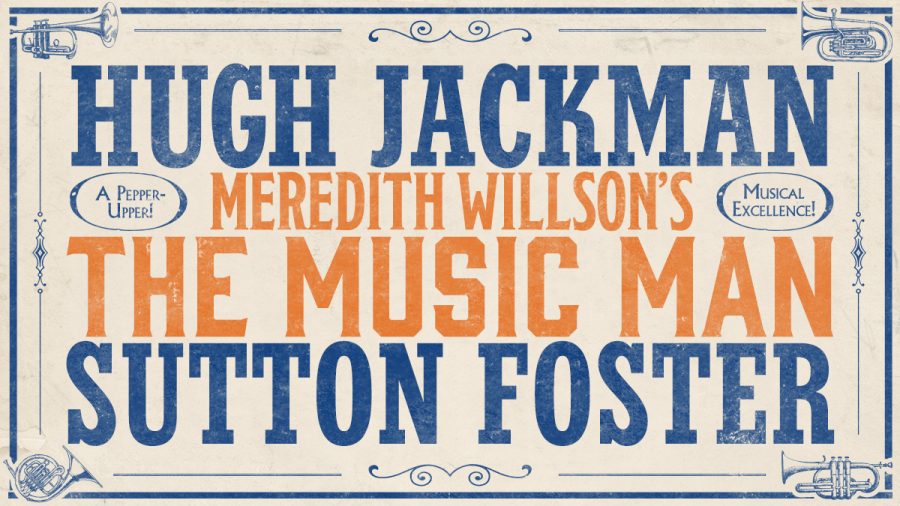‘Music Man’ controversy sparks change
Broadway needs to become more inclusive to everyone within their community.
March 1, 2022
The long anticipated Music Man revival returned to the Broadway Stage February 10, 2022. This beloved show features stars Hugh Jackman and Sutton Foster. We all know and love Jackman from his time as Wolverine or his musical appearance in The Greatest Showman. Many don’t know, but Jackman has had his fair share of musical roles such as Jean Valjean in the movie adaptation of Les Miserables.
Sutton Foster, a more unknown performer, plays Marian, the leading lady of the new Music Man show.
Recent controversy surrounds the event because the character of Marian, a traditional high soprano, is being played by Foster who cannot sing these higher notes. The role, unfortunately for Foster, has been sung in the same key since December of 1957.
As a result, Sutton had the musical director lower the key of the song to sit comfortably inside her vocal range.
Now, Broadway directors never lower or alter the key of the music because there is always someone who can sing it in the original key. Changing the key has been a taboo for centuries, and Broadway theaters are the ones who created that taboo.
So this leads to the bigger question:should musical directors lower the key of music to better fit within an actor’s vocal range?
The musical theater community gets less inclusive regarding vocals by the year. Shows are requiring their actors to sing notes that only a small percentage can physically sing. This has weeded out many actors as baritone and alto vocal types become more and more under-represented in theater.
The problem has left many actors out of work, andthere is still one group of actors who have suffered more– transgender actors. Many transgender actors face the issue of singing in the original key because their voices may not be in the expected range as the original cis gender character. They also face incredible discrimation from directors because most directors don’t like their “image.”
The reason the controversy has come to light is because if Sutton Foster, a cis gender female can change the key in order to fit her voice, why couldn’t directors change the key for a transgender performer?
One would think directors, in the name of inclusivity and equality, would allow transgender performers the same oppurtunity as cis gendered actors. More broadly, this would also open the path for more barotone and altos to have their time on the Great White Way.
Shows have become more accepting of trans performers, such as in 2020, one of the most notable Broadway shows still performing today, Wicked, casted Alexandra Billings as Madame Morrible. This made Broadway history as Alexandra was the first trans actor casted as a principal character.
Let’s hope Broadway stays on a good trend going upward and that our theater community grows more open to the idea of diversity of all sorts.




























































Allen • Jul 12, 2023 at 10:18 am
The question is, should Broadway directors change the key of a song to accommodate an actor? My opinion is, No they should not. They should stick to there tradition and find an actor who can sing the notes as written. This is not community theater.
Michelle • Apr 18, 2023 at 12:30 am
Ummm I don’t know who thinks Sutton Foster is “unknown” but she has been a big Tony award winning Broadway star who draws audiences for over a decade. She is the one I went to see though I was pleasantly surprised to see how talented Hugh J was. But if you think Sutton is unknown, you should not be writing about Broadway.
Lisa • Oct 25, 2022 at 8:58 am
There’s always someone ready to enter a political reason for why something logical has been done. while you might think she’s relatively unknown, Foster is widely known in the Broadway performing community as an exceptional singer and large draw at the Box office which is likely why they obliged to accommodate her vocal range
Wayne Smith • Mar 3, 2023 at 11:56 pm
I agree that Sutton Foster is well known and a wonderful entertainer and dancer. I believe she has also won two Tony awards for other musicals.